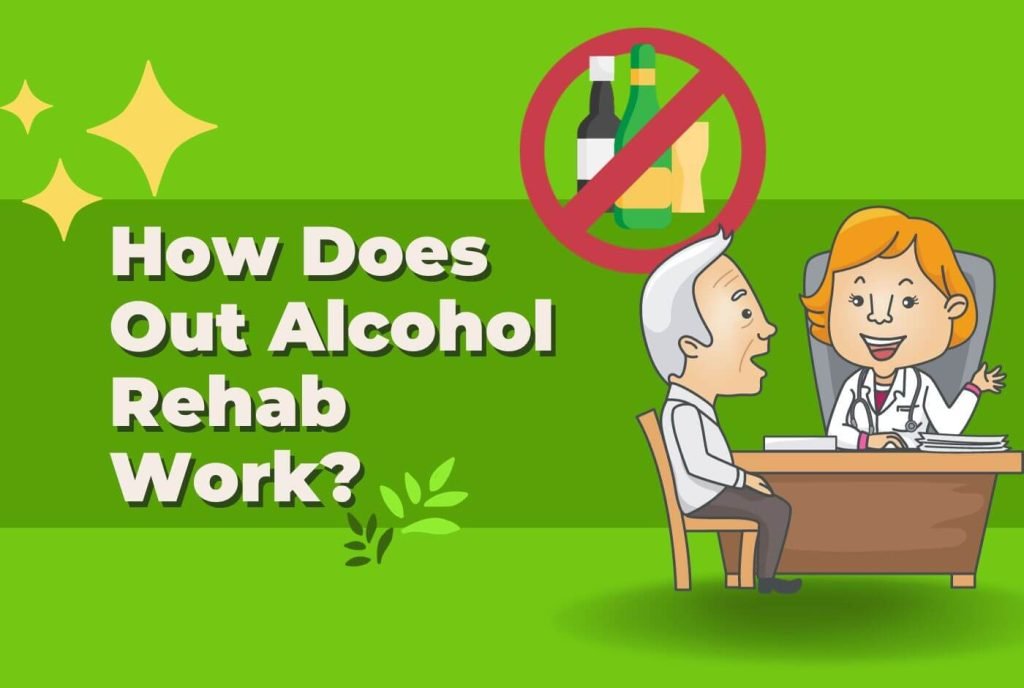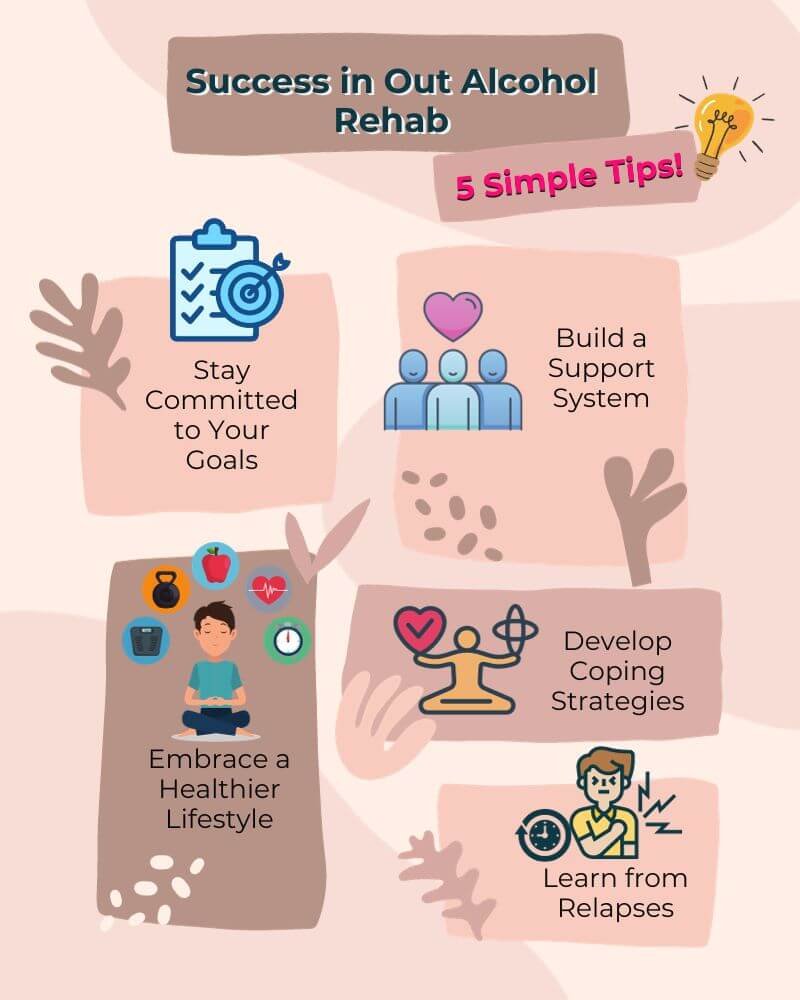Outpatient alcohol rehab is one way that people who are dealing with alcoholism can get better in a way that works for them and specifically, their schedule. For many individuals, a traditional inpatient rehab program may not be feasible due to work, family, or other commitments. Outpatient alcohol rehab allows individuals to attend therapy and treatments while still meeting their daily responsibilities. Additionally, those struggling with alcoholism may also benefit from exploring weed addiction treatment options if they have a dual diagnosis or have developed a dependency on both alcohol and marijuana. These options can provide a comprehensive approach to addressing their substance use disorder and promoting long-term recovery.
It is different from inpatient treatment because it lets people deal with their addiction while still keeping up with their daily tasks and responsibilities. Statistics reveal that 85-95% of people remain sober after attending an out rehab, the relapse rate is also lower.

In this blog, we’ll talk about how outpatient alcohol rehab works to give you a better idea of how this unique way of treating alcoholism works and share some tips. Let’s get going! Outpatient alcohol rehab options allow individuals to receive treatment for alcohol addiction while continuing to live at home and maintain their work and family responsibilities. This type of program typically involves regular therapy sessions, group meetings, and educational workshops to help individuals understand their addiction and develop coping strategies. It can be a flexible and effective option for those who may not be able to commit to a residential treatment program.
How Outpatient Alcohol Rehab Works
Outpatient alcohol rehab helps people learn how to deal with their addiction by combining one-on-one and group therapy meetings with medication management. Therapists will advise on the following things during treatment:
- Dealing with cravings
- Dealing with tough feelings linked to addiction
- Learning how to deal with things
People who are in an outpatient alcohol rehab program usually go to sessions three to five times a week for a few hours each day. During this time, they can get treatment that has been shown to work and get help from other people who are also in recovery. They can also keep going to meetings or staying in touch with family and friends while they are getting help.
My brother is an outpatient rehab successor. Me and my mother were all the way with him through his journey. I’m delighted to share my thoughtful insights. Outpatient rehab provides different kinds of services. According to what I’ve seen, they are-
Individual Therapy
This is basically a one-to-one therapy criterion. Here, patients work with licensed mental health professionals to work on the underlying issues that contribute to addiction.
Group Therapy
Group therapy is used in outpatient rehabs to help people remember that they are not the only ones trying to stay clean. Different things can be the goal of a group, such as learning how to deal with problems, spotting patterns in behavior, and so on.
Family Therapy
Having a family can often make all the difference in treating alcoholism. Patients and their families get together here to work out their differences and talk about how they can best help the patient recover in the long run.
Medication Management
This program is often used in severe cases. You will meet with a doctor to talk about the medicines you are taking now. Then, to help you stay sober, they may suggest that you add to, change, or take away medicines.
Support Groups
This is actually a post-rehab situation where it helps you prevent any relapse. You can join support groups with friends and families. Participation of a near and dear one can stimulate a person’s courage a lot.
What to expect at outpatient alcohol rehab
The idea of going to outpatient alcohol rehab can be both exciting and scary. There are many outpatient programs with different schedules, formats, and styles, so you can pick the one that fits your needs and tastes the best. You can choose to have more or fewer sessions each week, depending on what your care team tells you.
This part will give readers an honest look at their first few weeks of outpatient rehab to help them get ready for getting better. Let’s picture what a member would go through-
Orientation or Start of the journey
You go to an orientation event where you meet the treatment team, other people in the program and learn more about it after deciding to go to outpatient rehab. After that, you’ll have a talk with a counselor about your drinking, mental health, and treatment goals.
Building a Daily Routine
In outpatient rehab, you’ll maintain your daily routine, attending therapy and group sessions during the day while returning home in the evenings. Typically, your schedule might include morning individual therapy sessions and afternoons involving group therapy, while evenings are free for family, hobbies, or support group meetings.
Types of Activities
The week will include recovery-focused activities. Individual therapy will help you understand your addiction and build sober techniques. Group therapy helps you improve your communication and interpersonal skills, learn from peers, and build a support network. Including family in rehabilitation can improve relationships and emotional healing.
Tips for Success in Outpatient Alcohol Rehab

Outpatient rehabs are mostly feasible and it’s easier to manage your time. While my brother was in an outpatient alcohol rehab, I tried to support him in any aspect he was searching for. I have observed some scenarios and gathered some healthy tips for success in out alcohol rehab.
Here are the tips-
- Stay Committed to Your Goals
Define recovery goals, remind yourself daily, and write down reasons for seeking sobriety. Stay committed to positive changes and use motivation as strength during difficult moments.
- Build a Support System
Create a robust support network by sharing your rehab journey with loved ones and attending support group meetings to gain understanding and encouragement during challenging times.
- Develop Coping Strategies
During recovery, develop coping strategies with a therapist, including healthy alternatives like exercise, mindfulness, or creative outlets, to manage cravings and triggers and maintain sobriety.
- Learn from Relapses
Relapsing is a very common phenomenon. If you fall, don’t be hard on yourself. Instead, use it to learn and grow. Look at what led to the return and change what you’re doing to keep it from happening again.
- Embrace a Healthier Lifestyle
For rehabilitation, adopt a healthier lifestyle. Exercise, eat well, rest, and relax to reduce stress. A balanced and healthy lifestyle can improve your health and sobriety.
One great thing about outpatient alcohol therapy is that it lets people live at home or in a sober living center. It lets people keep working and talking to their friends and family while they are going through detox and rehab. If you or someone you care about has a problem with drinking too much, you should really think about going to a private alcohol rehab program.
- What to Pack for 30-Day Rehab? FREE Checklist - May 30, 2024
- Types of Outpatient Rehab: Difference One Should Know - March 28, 2024
- Truth Behind FMLA: Hidden Hurdles of Alcohol Rehab Leave - March 28, 2024